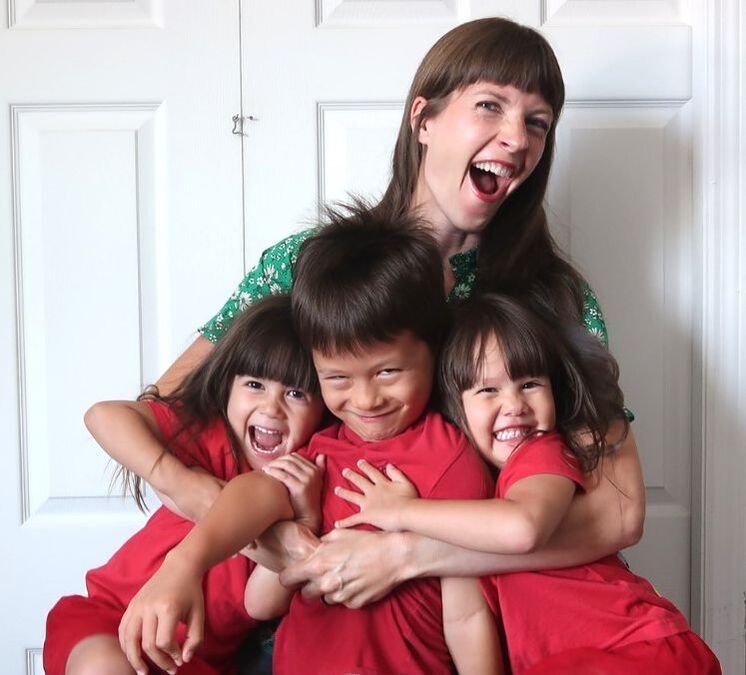|
Contributed post.
A lot happens in a baby’s first year. Knowing what to expect as a parent can help you to prepare for each stage. Tracking milestones can also be important for ensuring that your baby is developing at a healthy rate. Below are just some of the developmental milestones you can expect each month. It’s worth noting that every baby develops at a different rate and this is only an average guide as to what to expect - some babies will hit these milestones a few months earlier or later than others, and this is usually not a concern unless the milestones are way off. 1 month At one month old, your baby is still considered a newborn. They’re still getting used to the world, but they’ll most likely recognise certain faces by now and start reacting. At this stage, your little one may also be starting to move their head from side to side. Their hands are still likely to be clenched into fists, although they may move them a bit more than when they were first born. 2 months By two months, you may notice your little one starting to make noises beyond crying. This could include cooing ‘ooh’ and ‘aah’ sounds. This is also when you may start to see some of your baby’s first genuine smiles. Anything before this can be dismissed as wind, but by 2 months babies are starting to smile as a way of expressing happiness. 3 months Your baby may start following objects and sounds with head by three months. You’ll notice that they’re a lot more curious. Some babies start rolling over at this age. This is when you need to start being very careful of where you leave your little one. 4 months By 4 months, you may start to hear the beautiful sound of your baby’s laugh. Your baby is learning how to truly express their emotions now. Your baby should also be able to hold their head up without any support by this age. You’ll usually be able to tell that they no longer need support because they’ll be actively trying to lift their head. 5 months A lot of babies no longer need to be burped at 5 months. If they still look uncomfortable during feeding, it’s worth still burping them. But if you’re starting to have trouble getting anything out of them or they’re burping themselves, it may be time to stop. Some babies are also able to hold objects and shake them at this age. You should start to notice your little one getting much more interested in toys. Give them new toys and see how they react. 6 months 6 months is the point in which many babies can start moving onto solid food. You’ll want to try small portions at first, while still sticking mainly to milk to provide sustenance. This six month old feeding schedule explains more. Some babies are also able to regularly sleep through the night at this stage. If your baby is still getting up lots of times in the night, here are a few tricks that may help your baby to sleep through the night. 7 months By 7 months, most babies can sit up without support. If they’re not, you can encourage them to sit up by getting them used to sitting in a high chair. Many babies also learn to clap around this time. Try clapping in front of your baby and see if they mimic you. 8 months This is when most babies are starting to become really mobile. Time to babyproof your home! If they’re not already getting into everything, they will be soon. At 8 months, many babies also start attempting to copy sounds. This is the beginning stage of talking - but don’t expect any recognisable words yet. 9 months Most babies can crawl by 9 months. If your baby is still not crawling, try to practise regular tummy time and help them to move their arms and legs. Most babies will soon get the hang of it. Babies often perfect the pincer grip at this stage. Most will be able to hold their bottle by this age and many will be able to pick up food with their fingers and eat it. They’ll also be able to grab other things around them and put them in their mouth, so make sure nothing valuable (or dangerous) is in reach. 10 months Many infants at 10 months understand simple words like ‘yes’, ‘no’, ‘hello’ and ‘bye bye’. Some may have learnt to wave or may even play peekaboo back at you by placing their hands on their face. Your baby should have their first few teeth by now and is likely eating a lot more food. If you haven’t started brushing their teeth, now could be a good time to start. Make sure to use a baby toothbrush and baby toothpaste. 11 months At 11 months, most babies can stand on their own. Most babies learn to stand by pulling themselves up using furniture. They may quickly then learn to stand on their own (which can quickly lead to walking). A lot of babies at this age also dance to music. This could be sitting down or even standing up. Your baby is learning how to party - and it’s no wonder why considering their first birthday is around the corner! 12 months 25% of babies are able to walk by 12 months. If your little one is already able to crawl well and stand, you should keep an eye out for their first steps. While many parents are eager for their little one to walk, you’ll quickly wish they were still crawling once they do find their feet. Get prepared by raising valuables and hazardous items further out of reach. 12 months is also the age when some babies start to utter their first words. That’s right - you could soon have a walking, talking baby on your hands. Help babies to learn words by slowly repeating them with actions.
49 Comments
4/25/2024 11:07:51 am
Thank you for sharing this important bit of information with us.
Reply
5/28/2024 09:09:13 am
Fantastic site. Thank you for the knowledge you shared on this blog.
Reply
What a splendid and thoughtful insight!.
Reply
The insights you shared were not only thought-provoking but also beautifully articulated. Your writing has a way of captivating the reader from start to finish.
Reply
Leave a Reply. |
About ME:I'm a NYC metro area mom blogger living in NJ with my Japanese husband & our 3 kids (twins plus 1), focusing on fun and honest product and travel reviews, saving moms time finding the best for their families! Find what you need in the menu bar or search section above! Categories
All
Archives
July 2024
|












 RSS Feed
RSS Feed



